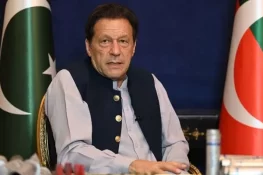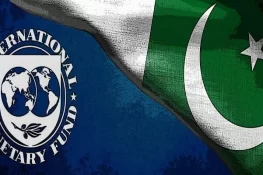Large-Scale Police Operation in Lahore
Punjab Police have revealed details of a major raid conducted at the residence of Saad Hussain Rizvi, leader of the Tehreek-e-Labbaik Pakistan (TLP), a religious political party known for its street power and controversial protests.
According to the official police spokesperson, the operation led to the seizure of PKR 144.4 million (approximately USD 520,000) in local currency, gold worth PKR 63.4 million, and foreign currency from multiple countries, including India, the United Kingdom, Canada, Saudi Arabia, and the United Arab Emirates.
Officials said that around PKR 2.5 million worth of international banknotes were found, including 50,000 Indian rupees. The search, conducted under tight security, lasted several hours at Rizvi’s Lahore residence.
FIA and Cybercrime Units Present During Raid
Police confirmed that representatives from the Federal Investigation Agency (FIA) and the National Cyber Crime Wing were also present during the operation. Their role was to monitor, document, and verify the recovery process to ensure transparency and proper chain of custody.
Authorities have not yet clarified whether the recovered money and gold were linked to political activities, party funds, or personal assets. However, law enforcement officials indicated that a financial probe is underway to determine the origin of the assets and whether they were declared under Pakistani financial regulations.
Background: Saad Rizvi and TLP’s Political Influence
Saad Rizvi is the son of the late Khadim Hussain Rizvi, the founder of Tehreek-e-Labbaik Pakistan, a movement originally formed to defend Pakistan’s blasphemy laws.
Since taking over leadership in 2020, Rizvi has maintained TLP’s populist tone, often mobilizing large-scale protests that have paralyzed major cities. The group has been involved in several violent clashes with police, especially during demonstrations related to blasphemy and foreign diplomatic issues.
Although banned briefly in 2021 under Pakistan’s Anti-Terrorism Act, TLP was later allowed to resume political activities after reaching an understanding with the government.
Crackdown on Fake News Networks During Protests
Alongside the raid, officials have launched a nationwide campaign against fake news and online propaganda that spread during recent religious demonstrations.
According to security sources, authorities have identified several domestic and foreign networks allegedly involved in spreading fabricated videos, deepfakes, and misleading content on social media platforms such as Facebook, X (formerly Twitter), TikTok, and YouTube.
The National Centre for Cybercrime and Intelligence Agency (NCCIA) has reportedly compiled a list of key individuals behind these operations. Cases will be registered under cybercrime laws, and arrests are expected soon.
Foreign Involvement and Digital Tracing Efforts
Officials said that digital tracing of networks originating from India and Afghanistan is underway. These networks are suspected of running coordinated misinformation campaigns aimed at fueling unrest during TLP protests.
The government is also coordinating with international law enforcement agencies through Interpol Red Notices and mutual legal assistance treaties (MLATs) to pursue those operating from abroad.
Forensic analysis of deepfake materials is in progress, while social media companies have been directed to remove fake or misleading content within 24 hours of identification.
Public Urged to Report Fake News
Provincial authorities have urged citizens to help curb misinformation. They encouraged the public to report fake news or suspicious online activity through the 1919 helpline, assuring that the identity of informants will remain confidential.
Special reaction units and provincial focal persons have been activated to respond swiftly to online misinformation trends.
Media and Influencers Warned to Verify Content
In a stern warning, government officials reminded news channels, bloggers, and social media influencers to verify information before publishing or sharing it online.
The Ministry of Information emphasized that spreading unverified claims or misleading hashtags could result in legal action. Coordinated efforts are also being made to dismantle trolling cells that amplify propaganda and hate speech.
Broader Context
The twin developments — the raid on Saad Rizvi’s residence and the digital crackdown — come amid growing concern over political polarization and online radicalization in Pakistan.
Experts note that social media misinformation has become a serious challenge for authorities, especially during protests or security crises.
As investigations continue, both the financial probe into Rizvi’s assets and the digital forensic operations are expected to shape the government’s broader narrative on accountability and media regulation in the months ahead.















